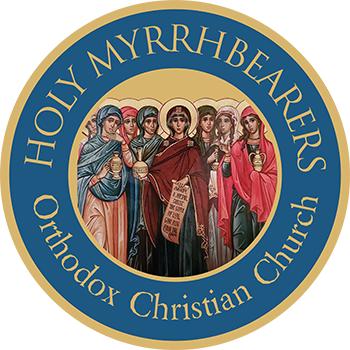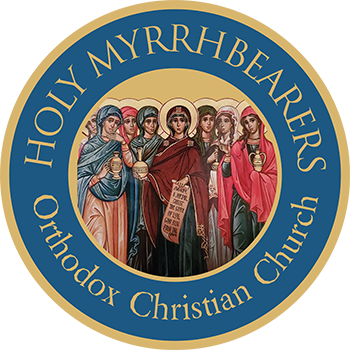April 02, 2021

Today we celebrate the memory of St Gregory Palamas. St Gregory is known first and foremost as a defender of the faith, upholding the Orthodox teachings of the unknowable essence and the energies of God by which we can know Him. This topic is quite deep and it seems as though it would not have much impact on us in our daily lives, but indeed it is important because by it both the complete “otherness” and greatness of God is preserved while at the same time our ability to truly know Him directly is maintained.
St Gregory taught that God is known in this manner only through prayer. He was also the champion of hesychastic prayer - or what we have come to know in the Church as the practice of the science and art of the prayer commonly called “the prayer of the heart”. There is much written and said about this practice of pure prayer and the vision of the divine light by the saints, and sometimes it seems a little out of reach for those of us who are not monastics or desert hermits. But this divine light is not just a vision that is reserved only for those who have achieved pure prayer - it is in fact the energy of God that fills all of creation. The ones who see this light simply are the ones who have purified their senses so that they can perceive this spiritual light. This is not unlike the light of the sun which pervades all things during the day is easily perceived by all those whose eyes are open to it.
St Silouan the Athonite, talks of this prayer in his own life and he teaches us that one of the effects of this kind of prayer is that we begin to perceive not only the presence of God in all places, but also we begin to perceive the unity of men - particularly the unity of the members of the Body of Christ (that is the Church) - but also the “connectedness” of all mankind. This awareness results in an increased fervor of prayer for others.
Intercessory prayer is, according to St Silouan, a necessary part of our spiritual life and the closer we come to Christ the more we are moved by the absolute necessity of intercessory prayer.
The scene depicted in the Gospel reading today was one I played as the Paralytic when I was just a mere boy in grade school. We were doing a play about this passage. I carried an old army cot around. In the Gospel today we see this event that depicts for us this intercessory prayer. When friends of the paralytic came to pick him up and carry him to Christ - this is an image of intercessory prayer. This is exactly what we do when we pray for someone, spiritually, we pick them up and carry them to Christ for healing. We are called to bear one another’s burdens and when we pray for one another, it is not just words to say, but in truth we take on part of the burdens of those for whom we pray. By our prayers we lighten their load and adding our strength to theirs, they are able to accomplish that which before seemed beyond their strength. This we see from the paralytic, who by his own strength could not approach Christ to be healed - but his friends came and adding their strength to his, they made it possible.
Another important thing to notice here is that there were four friends. When we pray together for someone then our added prayers become even more effective. When we come together in the liturgy or in the other services of the Church and pray for some common purpose, then our prayer becomes stronger and more effective. Thus when you or someone you know is ill or traveling or has some other need, or as our Church does today, as we strive toward a new building, then you should first begin to remember them in your own prayers, and then bring that need to the attention of the whole parish so that we can pray together. Give the names of those in need of prayer to the priest or deacon so that they can be remembered in the litanies for the sick or traveling or for those with some special need. This is why we have lists in the Narthex for you to write their names on.
Ask the priest to come and serve a moleben on behalf of someone who is in need - whether by gathering together at the Church or to go to the person wherever they are and to pray there. In this way we lift them up and carry them to Christ. In your own prayers, it is possible to pray for someone even if you do not know what specifically to pray for. All that is needed is to pray simply “Lord have mercy on N.” That’s it, nothing more. This simple prayer is very powerful and effective by itself and in this way we can lift one another up to Christ even without knowing all the “details”.
When you pray for someone, whether in private or public, whether by yourself or with others, you accomplish many things. First, as we mentioned you bear the burdens of the one for whom you pray - just as the 4 friends carried the paralytic, bearing him and all his burdens. Secondly, our prayer for others overcomes what seems to be insurmountable obstacles. When the paralytic and his friends approached Jesus Christ they found that the press of the crowd prevented their getting through with the pallet. Rather than give up, they worked all the harder and overcame the obstacle by removing the roof and lowering the paralytic through it. When we reach obstacles in our prayer, then this is not the time to give up, but it is the time to renew our efforts, to pray with greater focus and energy until we can bring the one for whom we pray into the presence of Christ. Prayer is never in vain, however, it is also important to remember that we must never abandon our prayer. The Holy Apostle Paul commands us to pray without ceasing and in intercessory prayer this is just as true as in our personal prayer. When we begin to pray for others our prayer should be not only consistent, but constant, always remembering those for whom we pray before the throne of God.
And this kind of constant intercession does not end when a person dies, but we continue to pray for the soul of the departed, for the forgiveness of their sins and the ease of their suffering. Our prayer for others is not stopped by any obstacle, not even death - all we have to do is to be constant in prayer, pray without ceasing.
When we are constant in our prayer, we accomplish one more thing - and that is that we bring the one for whom we pray to the feet of Christ where he can be healed and made whole. Having overcome all the obstacles, the four friends lowered the paralytic to the feet of Christ bringing him to the place where he could be healed and made whole. And our Lord did two things. First he forgave the sins of the paralytic healing his soul and then he healed his body so that he could again walk. This action of our Lord also gives form to our prayers for others. When we pray for them, we pray not only for the healing of body or solely for their physical needs, but we also pray for the forgiveness of sins and the healing of soul. In this way we bring those for whom we pray to the feet of Christ, asking for the healing of soul and body and for the filling of every need both spiritual and physical.
As we continue our Lenten struggles, let us not forget that we travel the path of salvation not as individuals, but together and that it is necessary for us to support one another with prayer and intercessions. Pray for one another, bear one another’s burdens, lift each other up before the throne of God so that together we might be healed and enter into His Kingdom. Glory to God almighty!!
Comments will be approved before showing up.

